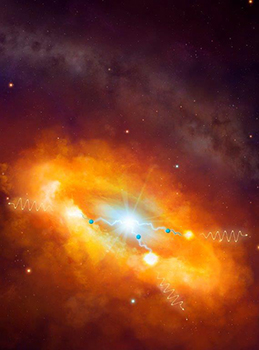Latest News Archive
Please select Category, Year, and then Month to display items
03 January 2023
|
Story Lacea Loader
|
Photo Evert Kleynhans
 Dr Dolf van Niekerk.
Dr Dolf van Niekerk.
The University of the Free State (UFS) would like to express its condolences to the family and friends of South African author, Dr Dolf van Niekerk, on his passing.
Dr Van Niekerk, the recipient of an
honorary doctorate from the UFS, passed away on 31 December 2022. The UFS awarded a Doctor of Letters to Dr Dolf van Niekerk during its April 2021 graduation ceremony.
Dr Van Niekerk was a celebrated author who also achieved fame as a dramatist and radio presenter. An alumnus of the UFS, he received a BA degree from the university cum laude in 1949. He also played a role in academia and was an emeritus professor at the University of Pretoria until his retirement in 1994. His work includes 27 books in philosophy, poetry, fiction, drama, and memoirs, for which he has received numerous awards. These include the
Eugene Marais Prize, the MER Prize, and the Scheepers Award for Youth Literature.
“Dr van Niekerk is a Kovsie alumnus with a deep connection to the Free State. He played a significant role in the country’s literary history, and it was an honour for the university to award him with an honorary degree. A wordsmith of note, Dr van Niekerk’s contributions to South African literature, radio, and stage will live on," says
Prof Francis Petersen, Rector and Vice-Chancellor.
Two scientists part of team that discovers the source of the highest energy cosmic rays at the centre of the Milky Way
2016-03-22

Artist's impression of the giant molecular clouds surrounding the Galactic Centre, bombarded by very high energy protons accelerated in the vicinity of the central black hole and subsequently shining in gamma rays.
Artist's impression: © Dr Mark A. Garlick/ H.E.S.S. Collaboration Spotlight photo:
Dr Brian van Soelen and Prof Pieter Meintjes of the UFS Department of Physics.
Photo: Charl Devenish
|
H.E.S.S. (High Energy Stereoscopic System) scientists publically revealed their latest galactic discovery in the international science journal, Nature, on 16 March 2016. These scientists were able to pinpoint the most powerful source of cosmic radiation – which, up to now, remained a mystery.
Part of this team of scientists are Prof Pieter Meintjes and Dr Brian van Soelen, both in the University of the Free State (UFS) Department of Physics. Dr Van Soelen explains that they have discovered a proton PeVatron – a source that can accelerate protons up to energies of ~1 PeV (10^15 eV) – at the centre of the Milky Way. The supermassive black hole called Sagittarius A has been identified as the most plausible source of this unprecedented acceleration of protons.
The protons are accelerated to Very High Energy (VHE) gamma rays. The energy of these protons are 100 times larger than those achieved by the Large Hadron Collider at CERN (the European Organization for Nuclear Research).
According to Dr Van Soelen, the fact that this research has been published in Nature demonstrates the importance and pioneering nature of the research conducted by H.E.S.S. The H.E.S.S. observatory – operational in Namibia – is a collaboration between 42 scientific institutions in 12 countries.
In 2006, H.E.S.S. was awarded the Descartes Prize of the European Commission – the highest recognition for collaborative research – and in 2010 the prestigious Rossi Prize of the American Astronomical Society. The extent of the observatory’s significance places it among the ranks of the Hubble Space Telescope and the telescopes of the European Southern Observatory in Chile.
“The next generation VHE gamma-ray telescope,” Dr Van Soelen says, “will be the Cherenkov Telescope Array (CTA), which is currently in the design and development stage.” Both Dr Van Soelen and Prof Meintjes are part of this project as well.
H.E.S.S. has issued a complete statement about the paper published in Nature.